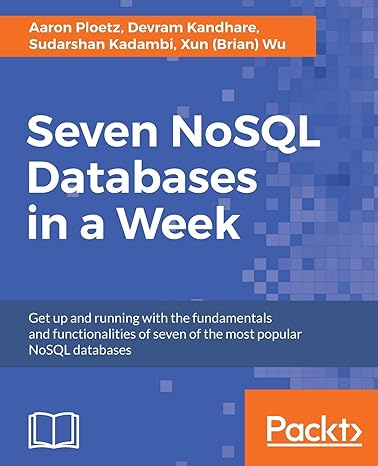Question
Could someone please write and explain a general passing complete system verilog assertion for the following design. module testbench; reg clk; reg reset; wire [7:0]
Could someone please write and explain a general passing complete system verilog assertion for the following design.
module testbench;
reg clk; reg reset; wire [7:0] result,OUT1,OUT2,Data2,mux1out,immediate,mux2out; wire [2:0] Select;
initial $monitor("Res=%b O1=%b O2=%b D2=%b mux1=%b imm=%b mux2=%b S=%b clk=%b R=%b",result,OUT1,OUT2,Data2,mux1out,immediate,mux2out,Select,clk,reset);
proccessor myproccessor(result,OUT1,OUT2,Data2,mux1out,immediate,mux2out,Select,clk,reset);
initial begin clk=1'b1; reset=0; end
always #5 clk=~clk;
initial begin #80 $finish; end endmodule
/////////////////////////////////////////////////////////////////////////////////////////////// module alu(out,Data1,Data2,Select); input [7:0] Data1,Data2; input [2:0] Select; output reg [7:0] out;
always@(Data1,Data2,Select) begin case(Select) 3'b000:out<=Data1; 3'b001:out<=Data1+Data2; 3'b010:out<=Data1&Data2; 3'b011:out<=Data1|Data2; endcase end endmodule
module regfile8x8a(OUT1,OUT2,clk,INaddr,OUT1addr,OUT2addr,IN);
input clk; input [7:0] IN; output [7:0] OUT1,OUT2; input [2:0] INaddr,OUT1addr,OUT2addr; reg [7:0] reg0, reg1, reg2, reg3,reg4,reg5,reg6,reg7;
assign OUT1 = (OUT1addr==3'b000)?reg0: (OUT1addr==3'b001)?reg1: (OUT1addr==3'b010)?reg2: (OUT1addr==3'b011)?reg3: (OUT1addr==3'b100)?reg4: (OUT1addr==3'b101)?reg5: (OUT1addr==3'b110)?reg6: (OUT1addr==3'b111)?reg7:0; // add until 8 // assign OUT2 = OUT2addr == 0 ? reg0 : OUT2addr == 1 ? reg1 : OUT2addr == 2 ? reg2 : OUT2addr == 3 ? reg3 : OUT2addr == 4 ? reg4 : OUT2addr == 5 ? reg5 : OUT2addr == 6 ? reg6 : OUT2addr == 7 ? reg7 :0; //add until 8// always @(negedge clk) begin case(INaddr) 3'b000:reg0=IN; 3'b001:reg1=IN; 3'b010:reg2=IN; 3'b011:reg3=IN; 3'b100:reg4=IN; 3'b101:reg5=IN; 3'b110:reg6=IN; 3'b111:reg7=IN; // your code here endcase end // always @ (negedgeclk) endmodule
module CU(OUT1addr,OUT2addr,INaddr,immediate,Select,imm_signal,comp_signal,instruction);
input [31:0] instruction; output reg [7:0] immediate; output reg imm_signal; output reg [2:0] Select; output reg [2:0] OUT1addr; output reg [2:0] OUT2addr; output reg [2:0] INaddr; output reg comp_signal; always @(instruction) begin immediate = instruction[7:0]; //opcode=instruction[31:24]; Select = instruction[26:24]; INaddr = instruction[18:16]; OUT2addr = instruction[2:0]; OUT1addr = instruction[10:8]; imm_signal = 1'b0; comp_signal = 1'b0; case (instruction[31:24]) 8'b00001000: imm_signal = 1'b1; 8'b00001001: comp_signal = 1'b1; default:; endcase end endmodule
module mux(out,select,input1,input2);
input select,clk; input [7:0] input1,input2; output reg [7:0] out; always @* begin if (select==1) out = input1; else out = input2; end
endmodule
module compliment(out,in); input [7:0] in; output [7:0] out; reg [7:0] comp=8'b11111111; assign out=(comp-in)+8'b00000001; endmodule
module regInstructions(instruction,clk,Read_Addr); input clk; input [2:0] Read_Addr; output reg [31:0] instruction;
reg [31:0] addr1 = 32'b00001000000001000000000011111111; // loadi 4, X, 0xFF reg [31:0] addr2 = 32'b00001000000001100000000010101010; // loadi 6, X, 0xAA reg [31:0] addr3 = 32'b00001000000000110000000010111011; // loadi 3, X, 0xBB reg [31:0] addr4 = 32'b00000001000001010000011000000011; // add 5, 6, 3 reg [31:0] addr5 = 32'b00000010000000010000010000000101; // and 1, 4, 5 reg [31:0] addr6 = 32'b00000011000000100000000100000110; // or 2, 1, 6 reg [31:0] addr7 = 32'b00000000000001110000000000000010; // mov 7, x, 2 reg [31:0] addr8 = 32'b00001001000001000000011100000011; // sub 4, 7, 3
always @(negedge clk) begin case (Read_Addr) 3'd0:instruction = addr1; 3'd1:instruction = addr2; 3'd2:instruction = addr3; 3'd3:instruction = addr4; 3'd4:instruction = addr5; 3'd5:instruction = addr6; 3'd6:instruction = addr7; 3'd7:instruction = addr8; default :; endcase end endmodule
module counter (Read_addr,clk,reset); input clk; input reset; output reg [2:0] Read_addr=0; always @(negedge clk) if(!reset) begin Read_addr<=Read_addr+3'd001; end else begin Read_addr<=0; end endmodule
module proccessor(result,OUT1,OUT2,Data2,mux1out,immediate,mux2out,Select,clk,reset); input reset; input clk; output [2:0] Select; wire [2:0] Read_addr; wire [31:0] instruction; wire [2:0] OUT1addr,OUT2addr,INaddr; output [7:0] immediate,OUT2,Data2,mux1out,result,OUT1,mux2out; wire comp_signal,imm_signal;
counter mycounter(Read_addr,clk,reset); regInstructions myreg(instruction,clk,Read_addr); CU mycu(OUT1addr,OUT2addr,INaddr,immediate,Select,imm_signal,comp_signal,instruction); regfile8x8a myregister(OUT1,OUT2,clk,INaddr,OUT1addr,OUT2addr,result); compliment mycomp(Data2,OUT2); mux mux1(mux1out,comp_signal,Data2,OUT2); mux mux2(mux2out,imm_signal,immediate,mux1out); alu myalu(result,mux2out,OUT1,Select); regfile8x8a myregister1(OUT1,OUT2,clk,INaddr,OUT1addr,OUT2addr,result); endmodule
Step by Step Solution
There are 3 Steps involved in it
Step: 1

Get Instant Access to Expert-Tailored Solutions
See step-by-step solutions with expert insights and AI powered tools for academic success
Step: 2

Step: 3

Ace Your Homework with AI
Get the answers you need in no time with our AI-driven, step-by-step assistance
Get Started


